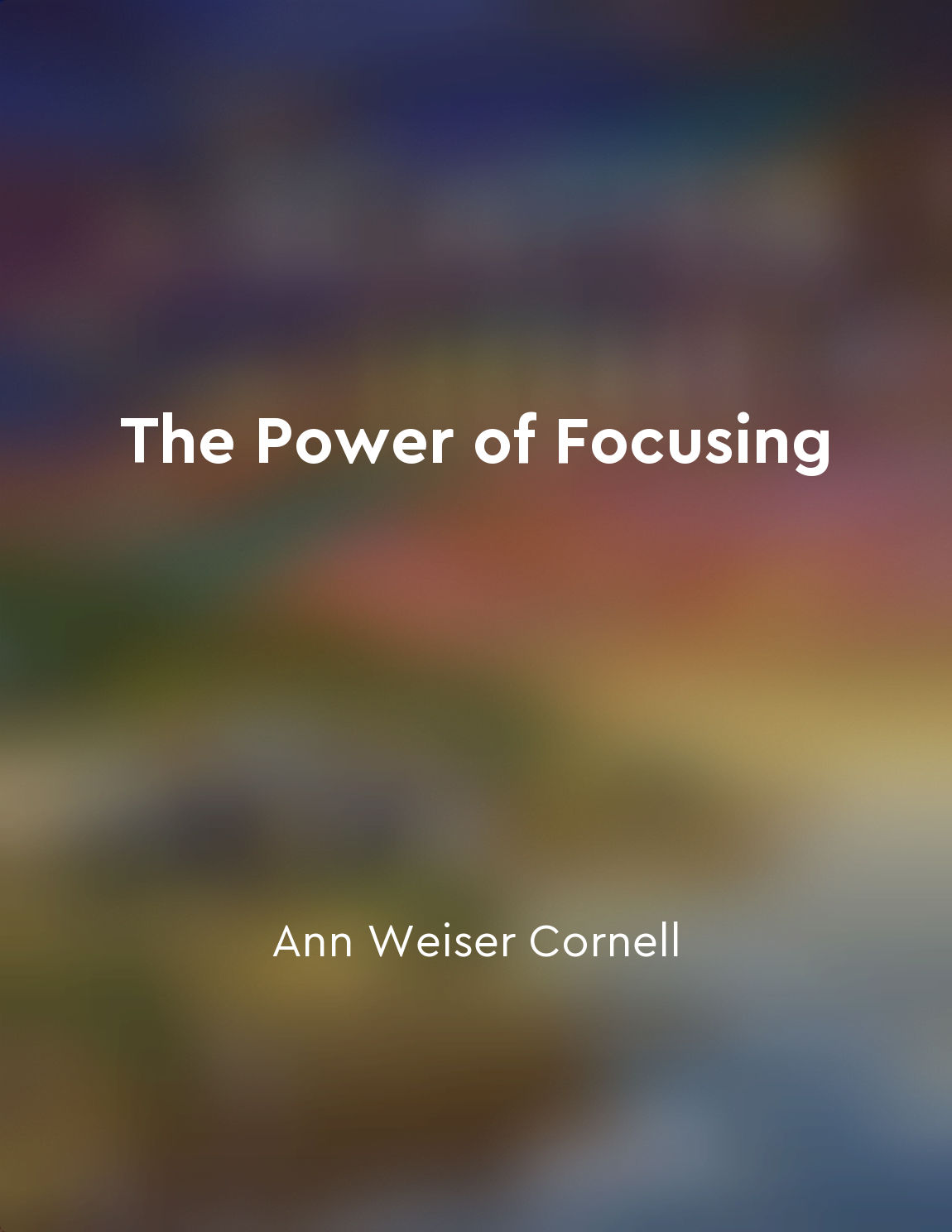Attention is not a mental spotlight from "summary" of The Concept of Mind by Gilbert Ryle
Attention is not a mental spotlight. This metaphor of a spotlight suggests that attention is like a beam of light that can be directed to focus on one particular object or idea at a time. The analogy implies that attention is a single, unified faculty that can be turned on or off at will. However, this simplistic view fails to capture the complexity of attention as a mental process. In reality, attention is not a single, unified faculty, but rather a complex and multifaceted phenomenon. It involves a variety of cognitive processes, such as selection, inhibition, and allocation of resources. These processes work together in a dynamic and interactive way to determine what we attend to and how we attend to it. Moreover, attention is not a passive spotlight that simply illuminates whatever it is directed towards. Instead, it is an active and constructive process that shapes our perception and understanding of the world. When we attend to something, we not only focus on it but also interpret, analyze, and make sense of it in light of our goals, beliefs, and expectations. Furthermore, attention is not a fixed and stable entity, but rather a flexible and adaptive capacity. It can shift and change in response to internal and external cues, such as our interests, emotions, and environment. Our attention can be captured by unexpected stimuli or redirected by deliberate effort. In sum, the metaphor of attention as a mental spotlight is misleading because it oversimplifies and distorts the true nature of attention as a complex, dynamic, and interactive process. By recognizing the multifaceted nature of attention, we can gain a deeper understanding of how we perceive, think, and act in the world.Similar Posts
Multitasking can increase the likelihood of mistakes
In the modern world, we often pride ourselves on our ability to multitask. We believe that by juggling multiple tasks at once, ...
Time blocking can help allocate specific time for hyperfocus sessions
When it comes to hyperfocus, one of the most effective strategies we can use is time blocking. Time blocking involves setting a...
Cultivating awareness leads to deeper understanding
As we engage in the practice of mindfulness, we begin to cultivate a greater sense of awareness - an awareness that penetrates ...
Flow occurs when a person engages in an activity that matches their skill level with the challenge presented
The concept centers around the optimal experience where an individual becomes fully immersed in an activity. This state arises ...

Cultivating selfcompassion is essential in the focusing process
When we engage in the practice of focusing, it is crucial to approach ourselves with kindness and understanding. Cultivating se...
